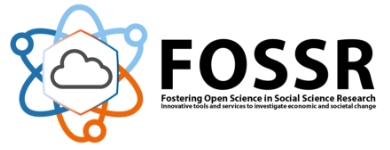9 May 2024
How can a cloud infrastructure be transformed into an integrated knowledge-sharing platform?
This was the starting question of the FOSSR online seminar, held on 29 April, led by Mario Ciampi (CNR-ICAR) and Sara Zuppiroli (CNR-ISTC).
Moderated by Daniela Luzi (CNR-IRPPS) and curated by Claudia Pennacchiotti (CNR-IRPPS), the seminar featured contributions from Mario Sicuranza (CNR-ICAR), Sonia Stefanizzi (University of Milano-Bicocca), Miguel Ceriani (CNR-ISTC), Lottie Provost (CNR-ILC), Fabrizio Marangio (CNR-ICAR), Filippo Accordino (CNR-IRPPS), and Giorgia Lodi (CNR-ISTC) — offering a broad set of reflections on data interoperability.
Opening the seminar, Mario Ciampi, Senior Technologist at CNR-ICAR, recalled that “FOSSR’s mission is to build, by 2025, a research infrastructure based on the Open Science Cloud, providing researchers and decision-makers with high-quality open data, new analytical tools, and innovative services in social science research.”
He explained that this would be achieved through a network architecture built on interoperable systems, enabling unified resource and data model management.
The research architecture consists of four layers:
A network of CNR data centers, currently being enhanced;
A cloud computing platform, enabling the realization of the Open Cloud;
A data management layer, ensuring uniform data access and representation;
Application services, supporting data processing and providing user-facing tools.
He also delivered a presentation the four FOSSR data center nodes (two first-level nodes in Naples and Palermo, two second-level nodes in Turin and Catania) and the Virtual Research Environment (VRE) cluster in Pisa, where researchers will share datasets, results, and ideas.
Finally, he noted that FOSSR’s infrastructure will rely on the GARR Network for connectivity and will provide high-performance storage and computing capacity, supporting AI and deep learning services.
The discussion also delved into accessibility and interoperability, covering topics such as IaaS models, authentication and authorization systems, metadata criteria, and data anonymization tools.
Sara Zuppiroli, Technologist at CNR-ISTC (Pisa), addressed the challenge of Linked Open Data, noting that research groups often use different vocabularies:
“To truly connect and integrate data from diverse sources, we must harmonize them and adopt shared standards.”
The session explored RDF data formats, RML declarative language, ontologies for data interconnection, and SPARQL protocols, alongside discussions on metadata models, key performance indicators (KPIs) for FOSSR’s impact assessment, and data privacy challenges.




